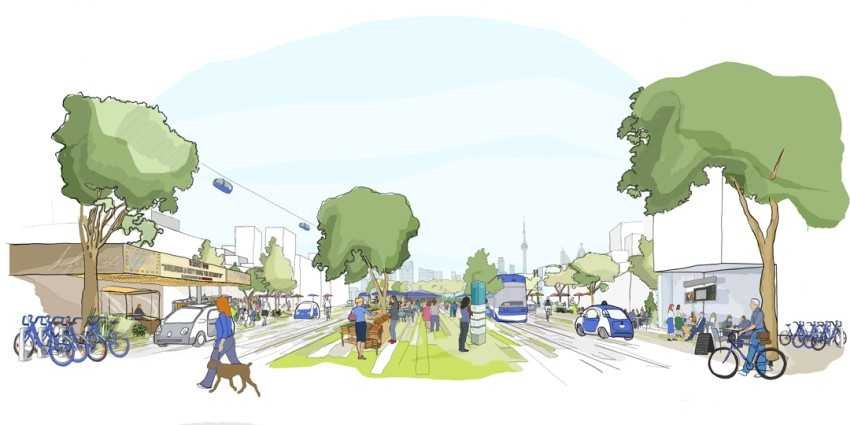Sidewalk Labs: Google has created an online empire by measuring everything: clikcs, GPS coordinates, visits, traffic, etc.
The company's resources are information about you, which they record, package, pack, repack, and then use them to sell you things.
This global data power is coming to the real world as well. Google is building a city.
On Tuesday afternoon, the Toronto Municipal Authority announced that Sidewalk Labs, a a subsidiary of Alphabet, will help in the regeneration of 12 acres of the southeast waterfront. Today, the area hosts some industrial buildings and some parking spaces.
Within a few years, a technical community called Quayside will be created. Sidewalk Labs has already made 50 available millions dollars to the project and Google is preparing to move its headquarters to this particular area of Toronto.
Once the company delivers the project, it plans to expand the regeneration of the entire area occupying an area of 800 acres.
It will be Google's neighborhood, built from scratch. Sidewalk Labs promises to integrate every kind of sensors everywhere, recording all traffic flow information, noise levels, air quality, energy use, travel and waste.
The cameras will help the company collect data to answer much more vague questions: Did the residents using a particular clinic get sick in a flu season? Is this corner the best place to create a grocery store? Will it work with local buyers or others coming from a different neighborhood?
Sidewalk Labs seems to be well aware of the weaknesses of city-building technologists and their arrogant optimism. The company insists: This redevelopment will be extremely careful.
"This is not a random activity on our part," Alphabet President Eric Schmidt said Tuesday.
"It's the culmination, on our part, of almost 10 years of thinking about how technology can improve people's lives."
The vision of the company dominates the fantastic. The proposal for the redevelopment of the waterfront neighborhood outlines a community where everyone will have their own account:
"An extremely secure, personalized gateway through which every resident will have access to public services and the public sector."
He can use his account to go to the gym, or to open the door of his home to the plumbing while he is in his job.
A mapping application will "record the location of all parts of the public space in real time." The construction will give priority to walkers and cyclists, and not to cars, although there will be shared "taxis" and "vanbots".
It will test a new housing concept called Loft for more flexible spaces to be used for what the community needs. It will experiment with building materials such as plastic, prefabricated modules and timber in place of steel.
And yes, Sidewalk Labs says it is working on a comprehensive privacy plan.
We should mention that Sidewalk Labs' approach is based on observed events, and takes into account the data it has stored from people. Thus building will be based on man and not on the high principles of design.
Sidewalk Labs faces a particular challenge: to build a place that works for everyone. Alphabet is very good at collecting personal information to repackage them to sell things.
But things, in this case, include basic city functions such as collection waste, safe roads, or efficient public transport.
"I think the company needs to show that it can offer city services that are not limited to a few," said Sarah Kaufman of the Rudin Center for Transportation at New York University.
“That means they should serve the elderly, the disabled, and the poor—populations served by cities and private Companies they don't".
Sidewalk Labs insists it wants to do just that….





